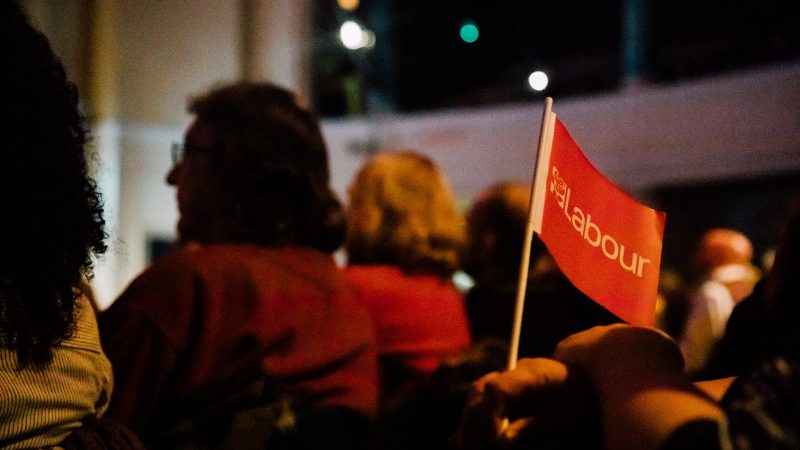
Candidates aligned with Keir Starmer have opened a clear lead over Labour left candidates in nominations for two key internal committees, signalling looming elections could hand the Labour leadership even greater sway over party structures and conference.
Candidates backed by the pro-Starmer Labour to Win group have received approximately twice as many local Labour party nominations as left-slate rivals ahead of elections to the conference arrangements committee (CAC) and the national constitutional committee (NCC), with just a few days left to nominate.
Nomination totals for Labour’s national women’s committee are closer between Labour to Win and the Centre-Left Grassroots Alliance (CLGA), though Labour to Win-backed candidates are also in the lead. The nomination deadline for the elections is midday on Friday.
Starmer-aligned candidates ahead in CAC election nominations
Constituency Labour Parties (CLPs) and affiliates are currently nominating candidates for the CAC, which is responsible for running annual conference, as well as the NCC, which oversees the disciplinary process within the party, and the national women’s committee, which leads on political work relating to women members.
Seven positions are up for election on the CAC: five in the general section and two CLP representatives. Labour to Win-backed candidates for the CLP rep positions Alice Perry (also backed by Open Labour) and Phil Wilson have so far received 43 and 40 nominations respectively.
Jean Crocker and Chris Saltmarsh – backed by campaign group Momentum and other organisations within the CLGA – currently have 22 and 19 nominations respectively.
Candidates require five nominations to make it on to the ballot, which means both slates are now guaranteed some representation on ballot papers at least. Party conference in October will vote on which candidates should make it on to the committee – following a decision last year by the national executive committee (NEC) to return to the election of the CAC by conference rather than one-member-one-vote ballot.
Win for leadership candidates would be key victory for Starmer
If the leadership-aligned candidates’ lead in nominations were to be replicated in the vote at conference, it would represent a notable victory for Starmer, as the two CLP rep positions on the committee are currently held by Seema Chandwani and Billy Hayes, whose candidacy was backed by Momentum and other left-wing groups.
Chandwani and Hayes were re-elected to serve a third two-year term on the committee in 2021, having previously been elected in 2017 and 2019.
A pro-Starmer source told LabourList that a strong performance for Labour To Win-backed candidates could pave the way for a smoother conference for the party leadership, either in Starmer’s last before or first after a general election.
They said it would make it less likely that the left could secure debates on rule changes, which would put internal party divisions on show when the leadership would rather the focus was on Labour’s outward message to voters.
The CAC has also used its powers previously to block policy motions, including one proposed on public ownership last year and a “green jobs revolution” the previous year.
NCC CLP section evenly split between factions at previous election
A total of 10 positions on the NCC are up for election: four trade union representatives, one socialist society representative and five CLP representatives. The fifth vacancy in the CLP section was only confirmed after the two factional groups had unveiled their slates, with both initially putting forward four names.
The initial four Labour to Win-backed candidates – Hugh Goulbourne, Sem Moema, Sue Pugh and Sioned-Mair Richards – have currently received between 38 and 41 nominations. The group’s fifth candidate, Brahmpreet Kaur, has 20 nominations.
Jabran Hussain, Dave Levy, Marion Roberts and Harry Stratton – the four candidates initially endorsed by Momentum and the other CLGA organisations – have so far received between 19 and 22 nominations. The fifth candidate added to the slate, Annabelle Harle, has four.
The last time seats on the NCC were contested back in 2021, Labour to Win gained two seats in the CLP section, reducing the number of Momentum-backed reps on the body. The four CLP rep positions up for grabs that year were evenly split between the two factional groups.
National women’s committee nomination totals closer
A total of 13 positions are up for election on Labour’s national women’s committee: six in the trade union section, six in the CLP section and one socialist society representative.
Nominations totals in the CLP section are currently closer between the factional groups than for the CAC or the NCC, though Labour to Win-backed candidates are again leading.
The six candidates on the unified left slate – Zoe Allan, Claudia Boes, Chloe Hopkins, Juliet Miller, Helen Smith and Cecile Wright – have between 15 and 19 nominations.
The six candidates endorsed by Labour to Win – Sagal Abdi-Wali, Amina Ali, Alison Gray, Caroline Price, Kathryn Salt and Lucy Smith – have between 23 and 30 nominations.
Gains for leadership candidates would build on progress last year
Last year’s elections to Labour’s governing body, the national executive committee (NEC), saw the Labour to Win slate increase its representation in the body’s CLP section to four, as well as gaining the youth rep position and retaining the BAME rep and Welsh rep positions.
NEC member Luke Akehurst – who was on the pro-Starmer group’s slate – described the results as an “important political and organisational victory for Labour to Win and the politics that we represent”.
A source on Labour’s left said at the time “some decline was inevitable” in response to the results but added that “four left-wingers in the CLP rep section – level-pegging with the right – is very respectable and a sign that the left remains a substantial force at the grassroots”.




More from LabourList
Turning the page? Labour’s recovery in the polls show a path to 2029 victory
Restoration announce recommendations for NEC candidates
‘Factionalism at the top is weakening Labour – and handing a gift to Reform’